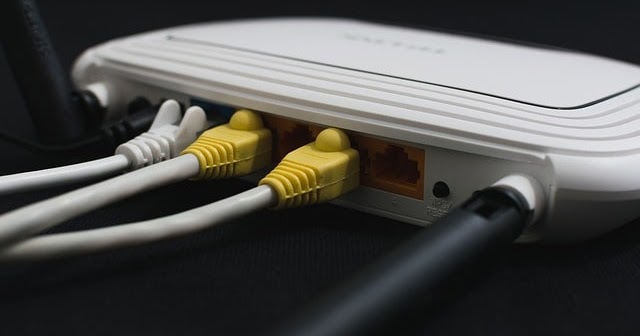A router is a critical part of your home network, but it also has some disadvantages. First, routers can be expensive. A good quality router can cost up to $200.
Second, routers can be difficult to set up and configure. This is especially true if you have a complex home network. Finally, routers can be unreliable.
If your router goes down, your entire home network will go down with it.
A router is a small, inexpensive device that helps direct traffic between computers on a network. While routers are typically very reliable, there can be some disadvantages to using one.
One disadvantage of using a router is that they can sometimes be tricky to set up.
If you’re not familiar with networking, it can be difficult to get your router configured correctly. Additionally, if you have a lot of devices on your network, it can be challenging to keep track of all the different settings and IP addresses.
Another potential downside of using a router is that they can slow down your connection speed.
This is because data has to travel through the router before it gets to your computer. So, if you’re trying to do something that requires a lot of bandwidth, like streaming video or gaming online, you may notice some lag time.
Overall, routers are generally very helpful devices that make it easy to connect multiple computers to the internet.
However, there are some potential drawbacks to keep in mind before setting one up.
Modem vs Router – What’s the difference?
Table of Contents
What are the Common Problems of Router?
Routers are one of the most important pieces of equipment in a home or office network, but they can also be one of the most frustrating. Here are some common router problems and how to fix them.
1. Slow speeds: If your router is giving you slow speeds, it could be due to interference from other devices, a poor location for the router, or outdated hardware.
To fix this, try moving your router to a different location, updating the firmware, or replacing the router with a newer model.
2. Connection drops: If your connection keeps dropping, it could be due to power fluctuations, bad cables, or interference from other devices. To fix this, try plugging your modem and router into a UPS battery backup, using high-quality Ethernet cables, and disabling any wireless devices that could be causing interference.
3. Wireless range issues: If you’re having trouble getting a strong signal from your router, it could be because the antenna is positioned poorly or because there are obstacles in the way of the signal (such as walls). To fix this, try repositioning the antenna and moving any obstructions out of the way.
4. Security concerns: Routers come with built-in security features to protect your network from intruders but they can also be vulnerable to attack if they’re not configured properly.
What are the Weaknesses of a Wifi Router?
A WiFi router’s main weakness is that it can be prone to interference from other electronic devices. This can cause the router to drop its connection or slow down its speed. Additionally, a WiFi router can be hacked if it is not properly secured.
Hackers can gain access to your personal information and even control your device if they are able to hack into your router.
What are 3 Disadvantages of Using a Network?
There are a few potential disadvantages to using a network. Firstly, if the network goes down, then all of the computers on that network will be unavailable. Secondly, if there is a problem with the network, it can be difficult and time-consuming to troubleshoot.
Finally, networks can be vulnerable to security threats such as viruses and hacker attacks.
What are 5 Disadvantages of a Network?
A network can be defined as a group of computers and other devices that are connected together in order to share data and resources. Although a network can offer many advantages, there are also some disadvantages that should be considered.
1. Cost: One of the biggest disadvantages of setting up a network is the cost involved.
In order to have a successful network, you need to invest in quality hardware and software. This can be a significant expense, especially for small businesses or home users.
2. Complexity: Another downside to networks is their complexity.
Configuring and maintaining a network can be quite challenging, even for experienced IT professionals. If something goes wrong, it can take awhile to figure out where the problem lies and how to fix it.
3. Security risks: When data is shared across a network, there is always the risk that it could fall into the wrong hands.
If proper security measures are not in place, confidential information could be leaked or stolen. malicious software (such as viruses or spyware) could also spread throughout the network, causing serious damage.
4 .
Dependency on technology: Anetworked world is heavily reliant on technology – if something goes wrong with the hardware or software, it can cause major problems . For example ,if there wasa power outage or an Internet connection issue , work would come toa standstill untilthe problemis resolved .
5 Limited scalability : As your business grows ,you may findthat your currentnetwork infrastructure cannot cope withthe additional demand .

Credit: mantechmachinery.co.uk
Advantages And Disadvantages of Wifi Router
As the world increasingly moves toward a more connected future, it’s no surprise that wifi routers have become an essential part of many people’s lives. While wifi routers offer a number of advantages, there are also some potential disadvantages to consider.
One of the biggest advantages of wifi routers is that they allow devices to connect to the internet wirelessly.
This means that you can use your laptop, tablet, or smartphone anywhere in your home or office without having to worry about being tethered to a physical connection. Additionally, most modern routers come equipped with powerful signal boosters that extend the reach of your wireless network, making it easy to stay connected even in large homes or offices.
Another advantage of wifi routers is that they’re relatively inexpensive and easy to set up.
Unlike wired networks, which can be complex and expensive to install, most wifi routers can be up and running in just a few minutes. Plus, thanks to their small size and modular design, they can easily be moved around as needed – perfect for apartments or other living spaces where space is at a premium.
However, there are also some potential drawbacks to consider when using a wifi router.
One issue is security – because wireless signals are transmitted through the air, they can potentially be intercepted by anyone within range. To combat this risk, many newer router models come equipped with advanced security features like encryption and password protection. Additionally, it’s important to keep your router updated with the latest firmware releases in order to ensure optimal security against newly discovered threats.
Another potential downside of wifi routers is interference from other electronic devices. Because wireless signals operate on the same frequencies as Bluetooth devices and microwaves (among others), it’s possible for these devices to cause interference with your network connection. To minimize this risk, make sure that any offending devices are kept as far away from your router as possible – ideally at least six feet away – and avoid using them while working or streaming video online.
Conclusion
While routers are one of the most commonly used networking devices, there are some disadvantages to using a router. One disadvantage is that routers can be expensive, especially if you need a high-end model to support your network. Another disadvantage is that routers can be tricky to configure, and if you don’t set them up correctly, they can cause problems with your network.
Finally, routers can be a security risk because they provide a direct connection between your network and the Internet.

